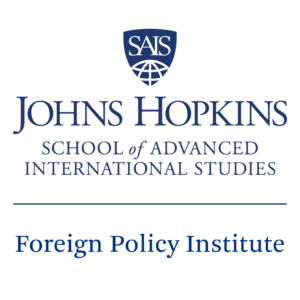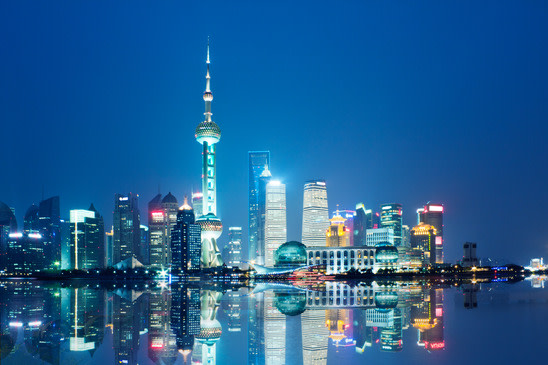
US Asset Managers Set to Launch Mutual Fund Units in Shanghai
BlackRock, Fidelity International other major players signal interest in setting up majority-owned mutual fund units in Shanghai, Shenzhen Daily and news agencies report.
From April 1, US and global players will be allowed majority ownership in mutual fund and brokerage industries as part of the interim China-US trade deal.
Excerpts from the article below:
“SOME of the world’s top financial institutions, including BlackRock and JPMorgan, are increasing investments in Shanghai, undeterred by the COVID-19 outbreak, Shanghai’s city government said Friday.”
“Shanghai held an online opening ceremony for local branches of five global institutions, including JPMorgan, Invesco and Russell Investment…”
“As part of the interim Sino-U.S. trade deal signed in January, China will scrap foreign ownership caps in the mutual fund and brokerage industries April 1.”
“Shanghai’s city government said foreign financial institutions are actively preparing to run wholly-owned businesses in the city.”
“Global asset managers, including BlackRock, Fidelity International, Neuberger Berman and Schroders, plan to set up mutual fund units in Shanghai and will submit applications once rules allow, the statement said.”
“In the brokerage sector, the Singaporean bank DBS has applied to set up a majority-owned securities venture in the city, while Morgan Stanley plans to raise its stake in its Chinese brokerage venture to 51 percent from 49 percent now.”
“In addition, several financial institutions plan to set up wholly-owned brokerage units in Shanghai as soon as ownership restrictions are scrapped.”
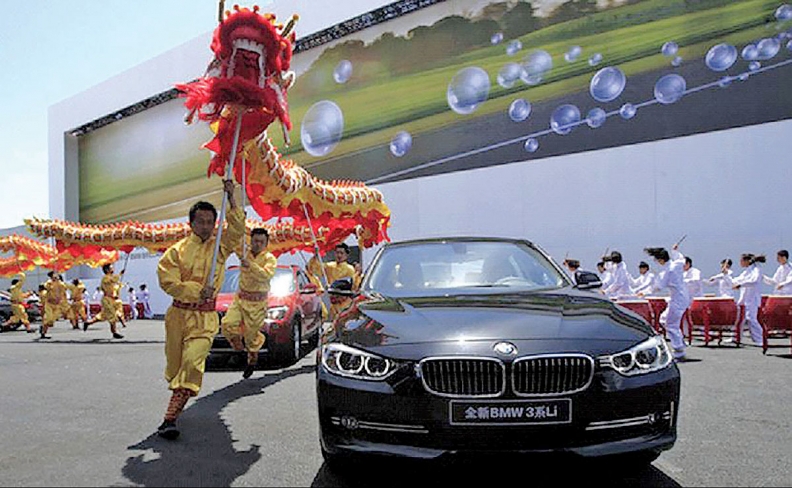
BMW Doubling Down on China Market
Even amid the ongoing Covid-19 pandemic, German carmaker BMW sees enormous potential in the China market and has pledged to ramp up its production in the world’s largest auto market.
This from China Daily
BMW AG is considering scaling up its investment in China as the German premium carmaker is convinced the country’s development potential in the long run remains positive, a senior company executive said.
“All of our investments we committed (in China) will continue, and we are actually discussing investing more in China in the future,” said Jochen Goller, president and CEO of BMW Group Region China, in a video on Wednesday.
“So China will remain our most important market worldwide.”
Full article here
Sales numbers for 2020 are likely to be down across all carmakers. Several Chinese carmakers slashed downward their sales targets for the year, China Daily reports.
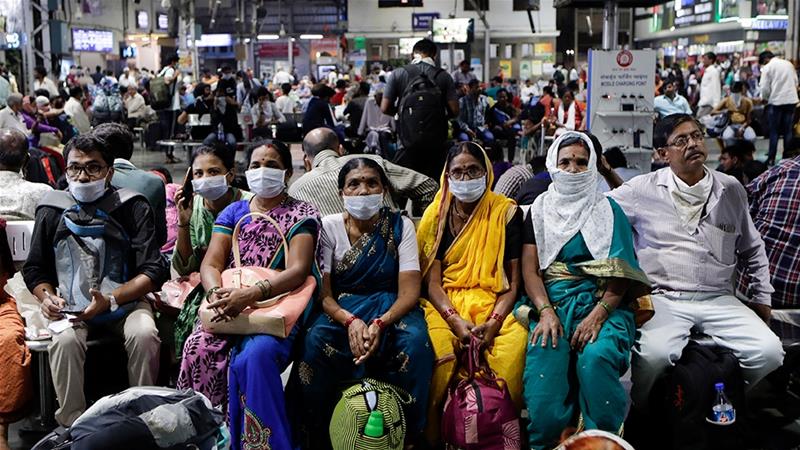
India Shuts Down Domestic Flights, Trains in Coronavirus Battle
India, one of the fastest growing aviation markets in the world, will have largely empty skies as of Wednesday at midnight. All domestic flights have been grounded, adding to the ban on all international flights.
The ban on all flights will continue to slam India’s aviation and tourism sectors and comes amid a time of slowing growth in India’s economy. India, like all major economies, is likely to see a severe decline in GDP growth for the second quarter, and potentially beyond.
In an even more dramatic move touching hundreds of millions of Indian lives, the government of Prime Minister Narendra Modi shut down India’s train network – the vast and sprawling iron and steel connective tissue that unites the country.
LiveMint India reports that the heavier crackdown is an attempt to flatten the curve, so India’s trajectory of cases begins to look more like Japan, and less like the United States. Excerpt below:
“More than three hundred thousand people are now suffering from Covid-19 even as the world struggles to contain the pandemic and find a cure. In India, the number of cases have shot up significantly over the past few days, prompting a lockdown that is growing in scope and spread with every passing hour, and inflicting a heavy toll on the most vulnerable sections of our society.
“As testing criteria in India have been stringent so far and are gradually being relaxed, it is likely that cases will continue to mount over the coming days, even if the lockdown mitigates the extent of the spread.”
“Two other large economies, Japan and the US have faced global criticism over the lack of adequate testing. But while the US has seen a sharp spike in cases, Japan appears to have managed to flatten the curve, if the number of recorded cases can be taken at face value. For India, the next few days will be crucial: as it will tell us whether we continue to follow in the footsteps of the US or move to a flatter Japan-like curve.”

Oliver Stelling on China’s Coronavirus Response
A column by Oliver Stelling, a Dubai-based strategic communications adviser. Oliver has spent more than 20 years working with corporate and government clients in the fast-moving markets of China, Southeast Asia and the Middle East.
The Coronavirus: High Stakes and a Potential for Breakthroughs
By Oliver Stelling
The initial response to the novel coronavirus (2019-nCoV) outbreak in Wuhan was all but inadequate. By taking full control Beijing accepted as much, moving fast to correct the record. The stakes couldn’t be higher given the downside risk and upward potential for China’s reputation.
It’s one of those favorite presentation openers by Western consultants: “Wéijī is Chinese for crisis and composed of two characters: danger and opportunity”. An acknowledgment of the situation and a motivating call to action – and not entirely accurate. Wéijī translates to “danger at a point of juncture”.
China reached that point during the last week of January. At the outset of the coronavirus outbreak local authorities in Hubei province downplayed the threat, causing widespread anger and rising doubt about any public information, especially the accuracy of reported cases.
Things got worse when the mayor of Wuhan admitted that 5 million residents had slipped out of the city before the lockdown came into effect. Then Hubei’s governor appeared at a press conference without that mandatory face mask and also botched a simple question about the province’s annual mask production. More and more citizens took to the internet, expressing their anxiety and unrestrained frustration.
Within the last few days, the number of confirmed cases skyrocketed and now stands at roughly 28,000. All is in flux but it looks as if 2019-nCoV is more contagious though less lethal than SARS, the 2003 epidemic that lasted for nine months.
Days before the sudden spike, President Xi Jinping delegated the crisis response to party central leadership under Premier Li Keqiang. In reprimanding local authorities he acknowledged public concerns and sent a clear signal that he accepts responsibility. Xi then made his strongest statement, declaring that China will defeat the ‘devil’ virus.
Most observers agree that Beijing will halt the spread of the virus in due course. Xi is obviously in charge of everything in China and his political fate is linked to passing tests like this. He will crush that devil. The question is how will the Chinese public and the world judge his measures?
There are two big incentives to mobilize all assets: the economy, already under pressure from decreasing global demand and the trade war with the United States cannot afford the devastating impact of an epidemic that drags on as long as SARS. And if Xi’s crisis management does show quick results there is significant potential to shift global perception just as anti-China sentiment is on the rise.
Beijing has much to gain from showing it’s serious about global collaboration. For once it would add proof to all stated foreign policy objectives such as promoting international relations and the building of a community with a shared future for mankind.
One top priority is to ensure that all measures are not only efficient but also well received and perceived, both domestically and on the global stage. This requires a thoughtful, strategic and pragmatic approach to public information and international communications.
Battling misinformation will be one of the very first tasks. When there is no or insufficient information someone else will always fill that void, adding public confusion to the original crisis. This is not a problem that only China faces. In 2014, the United States reported a few Ebola cases. The Centre for Strategic and International Studies (CSIS) just recalled that moment when “hysteria erupted that was aggravated by 24/7 cable news and slow and ineffectual high-level communications and coordination.”
The Chinese are a highly social media savvy people and usage numbers are climbing rapidly. In 2020, one out of two Chinese (740.9 million to be precise) will be an active user of social networks. Chatrooms on Weibo and WeChat are flooded with conspiracy theories and rumours but also genuine frustration, anguish and anger. Government calls for restraint were simply dismissed. That should be enough to give pause and realize that trust cannot be enforced but must be earned.
One way to advance that goal is to connect official media with trusted (and ideally media-trained) spokespeople, empowered officials and subject matter experts – in this case researchers and medical professionals. Once reliable third parties endorse the narrative trust levels go up.
The positive reaction was not long in coming for Beijing’s recent move to invite the World Health Organisation (WHO) to the country. The Lancet, a leading medical journal just cited the WHO’s chief Tedros Adhanom Ghebreyesus who praised China for its transparency, data sharing, and quick response.
Another important factor is time. Though local authorities reacted slowly, central Chinese health authorities immediately went into high gear and finished the genome sequencing within a month. By publishing the genetic make-up of the virus China enabled epidemiologists around the globe to study the disease.
While the need for timely and efficient action is self evident, it is equally important to be compassionate about those most affected by travel bans and lockdowns. Containing an epidemic is more than a numbers game; it’s about real people. Any perceived shortfalls in mitigating the hardship of necessary measures bears the risk of creating the next social media outrage.
The Upward Potential for China’s Reputation
I started this piece citing the West’s fascination with wéijī as the supposed Chinese way of seeing upsides in any crisis. Semantics aside, the coronavirus is indeed everything you may wish to read into wéijī: a danger in any scenario, a point of juncture and an opportunity; not just for China but all stakeholders.
It’s too early to predict the precise human, social and economic cost of the novel coronavirus but the impact is high and already felt globally. Entire supply chains are being disrupted. Airlines are cancelling flights to China. The tourism sector and retailers are taking a serious hit. Stock markets will remain volatile for some time.
As the number of infections keeps rising in and outside China it becomes abundantly clear that the world has a strong self-interest in helping China. And herein lies an opportunity no one is talking about.
The more international collaboration Beijing invites to combat the virus, the more likely it is that China’s global perception will see a gradual shift from rival toward partner. That could open doors for fresh starts and renewed talks on the most contested issues where trust is central.
Dealing with such outbreak would be an enormous challenge for any government. Beijing has shown determination and will succeed eventually. If it focuses on rebuilding trust and confidence in the process chances are it will succeed even faster.
This is the time for China and its critics to put all other differences aside, hear the other side out whilst trying to better understand one another. There is never a downside in talking. Just many upsides, for the fight against 2019-nCoV and beyond.
About the Author
Oliver Stelling is a Dubai-based strategic communications adviser. He has spent over 20 years working with corporate and government clients in the fast-moving markets of China, Southeast Asia and the Middle East.
Video: The Top Ten Busiest International Airports
In the year 1945, nine million people traveled by air annually. Today, nine million people travel by air every 18 hours. All told, some 4.7 billion passengers took to the air in 2019. Nearly 40% of those flights are international. The New Silk Road Monitor produced a Top Ten List of the busiest international air hubs, using data from Airports Council International and the International Air Transport Association.
#10 – Istanbul
#9 – Bangkok
#8 – Frankfurt
#7 – ….well, click the video…
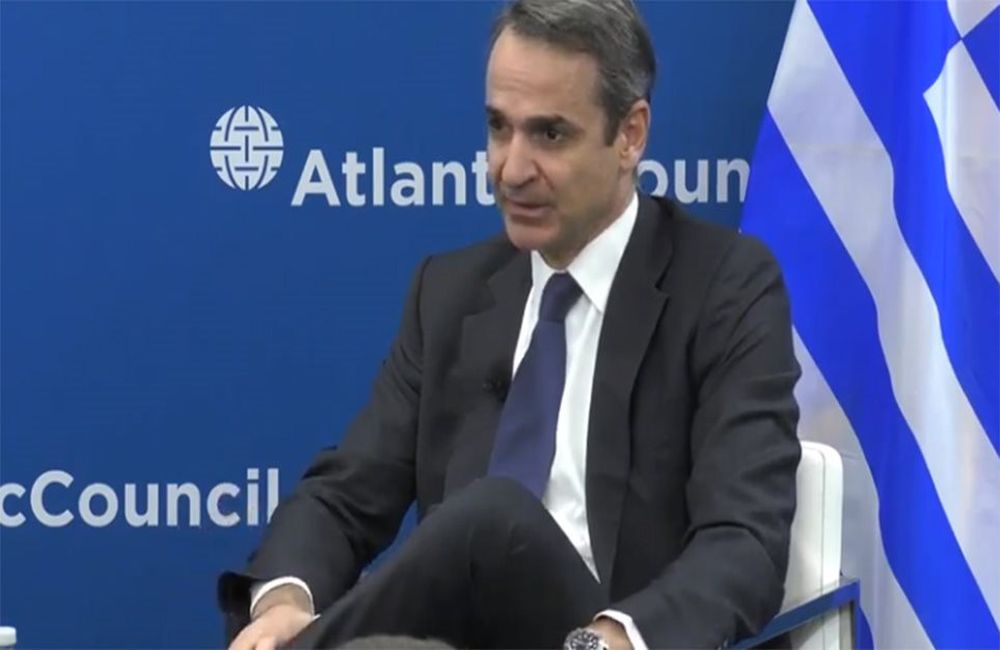
Greece Prime Minister Hails China on Piraeus Port, Wants More US Investment
The recently elected Prime Minister of Greece, Kyriakos Mitsotakis, was in Washington this week, doing the rounds, and I attended his highly engaging session at the Atlantic Council on Tuesday. He made a compelling case for the “Greece is back” narrative, outlining an ambitious reform process that aims to achieve 3% growth in 2020 after a disastrous decade of austerity, negative growth, and large-scale migration of the best brains in the country.
“We received a very clear mandate from the Greek people to change the country,” he said. He also noted that the previous populism of both the left and right “clearly failed to deliver,” and so “we made a clear case to the Greek public that we need to change and we need to embrace reforms and do them because they are good for the country, and we received a strong mandate to push down that path.”
As for China and New Silk Road matters, he praised China Ocean Shipping Company’s (COSCO) handling of the port of Piraeus since taking over significant operations in 2009 and purchasing a 51% stake in 2016. He noted that “they have done a very good job in taking over a port that was essentially a non-player in the Mediterranean and transforming it into the biggest port in the Mediterranean and creating lots of jobs in the process.” He also noted, however, that Greece is “not overly exposed to Chinese investment,” citing the lack of any Chinese participation in the country’s core 4G and 5G telecoms networks.
He also noted that the US is “clearly punching below its weight” when it comes to foreign direct investment in Greece, and made a pitch for more US private sector investments, while also declaring that “the Greek-American relationship, in my mind, is the best it has ever been.”
For his specific China-related remarks, see the video link here, brought directly to his China-related remarks, and my own notes in block quotes below. For the full video of the Prime Minister’s appearance at the Atlantic Council, go here
“We have an important economic relationship with China. They are big investors in our port. I think they have done a very good job in taking over a port that was essentially a non-player in the Mediterannean and transforming it into the biggest port in the Mediterranean and creating lots of jobs in the process and having very ambitious plans as to how to further strengthen Piraeus and – why not? – become the biggest port in Europe.”
“You can’t argue with geography. Piraeus is the natural entry point for goods coming from Asia but also from Eastern Africa into Central and Eastern European markets. That’s not going to change and it would be very naïve for us not to take advantage of that important geopolitical position…Greece is a natural entry point and a logistics center for this part of the world.”
“We are not overly exposed to Chinese investment. My goal is always to have foreign sources of capital be as diversified as possible. There will be new opportunities if you look at ports. New ports to be prioritized. We are looking for American and European interest to participate in these investment opportunities. Greece and China also have important cultural ties…China is also a very big market for Greek goods.”
“Are we concerned about critical infrastructure? Of course we are. Greece is one of the few European countries that does, as far as its core network is concerned regarding 4g and 5g, does not have any Chinese suppliers in its core networks.”

Hong Kong Airlines Facing Bankruptcy, Job Cuts
Hong Kong airlines are feeling the heat, facing bankruptcy and job cuts after six months of anti-Beijing demonstrations, Bloomberg reports.
Hong Kong’s airlines face the prospect of further job cuts and even bankruptcies as anti-Beijing protests continue to deter tourists from the city, adding to the pressure on an industry already facing headwinds globally.
Six months of anti-Beijing demonstrations have sent passenger traffic tumbling in Hong Kong, producing a cascade of profit warnings, flight cancellations and cost cuts at airlines. The fallout intensified this week as market leader Cathay Pacific Airways reported a fourth straight monthly drop in passenger traffic and Hong Kong’s Airport Authority said it seized seven planes from Hong Kong Airlines after the embattled carrier failed to make certain payments.

New Podcast Explores “Radical Ideas” for Development in Africa and Beyond
Aubrey Hruby and Gyude Moore are two of the smartest Africa and frontier market thinkers in the business today. They have joined hands to launch a new podcast – NewThink. The podcast, described as a place for “radical ideas for economic development in frontier and emerging markets,” has already delivered in its early episodes with insightful conversations on job creation in Nigeria, charter cities in frontier markets, and investing in Africa’s creative industries.
Check out the podcast here, or wherever you check out podcasts.
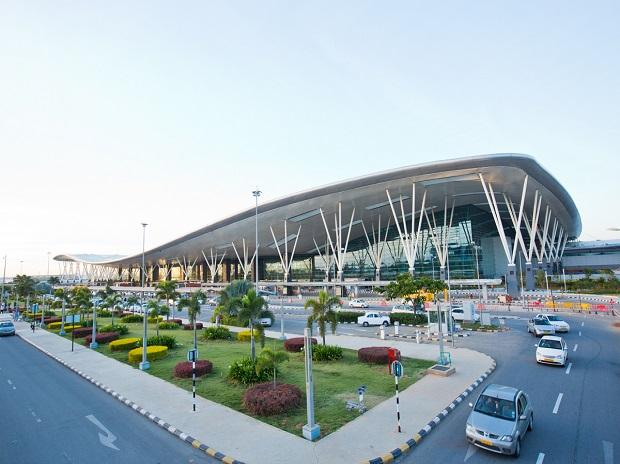
The World’s Fastest Growing Airports
It should come as no surprise to readers of these pages that the fastest growing airports are in the emerging world along the New Silk Road. In fact, according to Airports Council International, 12 of the 30 fastest growing airports are either in China or India.
Here are the Top 5 Fastest Growing Airports
- Bangalore Airport, India
- Antalya Airport, Turkey
- Hyderabad Airport, India
- Vnukovo Airport, Russia
- Jinan Airport, China
And here are the Top Ten Busiest International Air Hubs. Hint: Dubai remains #1.
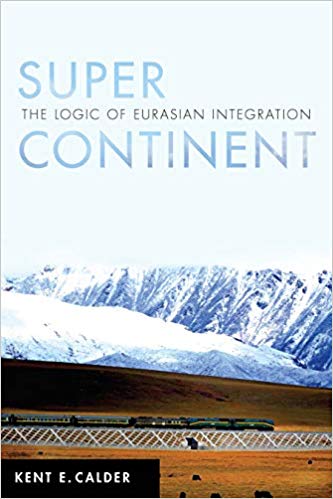
The Eurasian Super Continent and Our Collective Future
In one of the most memorable lines from Ernest Hemingway’s classic work, The Sun Also Rises, one of the lead characters was asked how he went bankrupt. His response? “It happened gradually, and then suddenly.”
I often think of that line as I reflect on China’s geo-economic engagement across the Middle East, Central Asia, broader Asia, and Europe. Quietly, gradually, and, then, seemingly suddenly, China has emerged as the most important geo-economic partner and actor across Eurasia. From trade to investment, from the infrastructure of connectivity to the technology investments of tomorrow, China has become a major player across the Eurasian landmass, a region that has been re-integrating in ways that harken back to the Silk Road of the pre-Renaissance era. Of course, as with any major global development today, what distinguishes today’s Eurasian integration from any historical parallel are two things: speed and scale.
Kent Calder’s remarkable new book, Super Continent: The Logic of Eurasian Integration, takes you inside the speed and scale of today’s Eurasian integration with a sharp analytical lens characteristic of his work, loaded with rich data and maps, and a clear-eyed analysis of what it all means for the future of world affairs.
A short excerpt below from the work, but I highly recommend it to all interested in any aspect of geopolitics or geoeconomics today. It’s the biggest story in the world today, and told skillfully by one of the great scholars of our era.
“What seems incontestable is that an increasingly reconnected Eurasia is now emerging — aided, but not created by Xi Jinping’s ambitious BRI. Cargo trains between China and Europe, which only began running in 2011, increased to more than 3,000 during 2017 alone, surpassing the previous six years combined. Those trains carried products such as PCs, clothing, and auto parts westward, with whisky, pharmaceuticals, baby formula, and machinery flowing eastward on the return. The volume of maritime cargo, technical contracts, and air flights across the continent are all expanding, together with political-economic coordination mechanisms like the Asia-Europe Meeting (ASEM), the Shanghai Cooperation Organization (SCO), and the 16+1 summit-conference series between Eastern Europe and China. Reconnection, in short, is the order of the day.”
